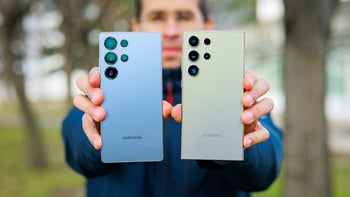New study to show that texting is a good way to get more truthful answers to questions

This week at the annual meeting for the American Association of Public Opinion Research, a new study is going to be released which shows that the best way to get a truthful response to a question is to have the question and answer sent and received via text message. According to Fred Conrad, a cognitive psychologist and Director of the Program in Survey Methodology at the University of Michigan Institute for Social Research, this is the opposite of what most people expect. Because texting leaves a visual record of each question asked and answer received either on a phone or in the cloud, Conrad said that most people assume that texting reduces the chance that sensitive or truthful answers would be revealed via its use.The researchers also found that those responding to questions via text were less likely to use a method known as 'satisficing' when giving answers. That is the practice of giving answers that are 'good enough'. For example, an example of satisficing is round a numerical answer to ten. Because those using text messaging to respond to questions don't have the time pressure that someone responding to questions via a hone call might feel, text messaging often leads to more precise answers "as respondents are able to take longer to arrive at more accurate answers." Michael Schober, a professor psychology and dean of the graduate faculty at the New School for Social Research, said that while these are early days in the study, it appears that text messages remove the users "tendency to shade the truth" including personal details.
The study was conducted from a group of 600 Apple iPhone users found through Google Ads, on Craig's List and from from Amazon's Mechanical Turk. They were offered iTunes incentives to participate in the study which asked whether respondents differed their answers to questions depending on whether they were asked them via voice or text, and whether they were asked the questions by a human or computer. The survey also wanted to know if the answers would be different if the question were asked in front of other people and whether the questions were asked in front of other people and if the respondent was multitasking while responding to the questions.
source: PHYS.org via Textually.org
"The preliminary results of our study suggest that people are more likely to disclose sensitive information via text messages than in voice interviews. This is sort of surprising since many people thought that texting would decrease the likelihood of disclosing sensitive information because it creates a persistent, visual record of questions and answers that others might see on your phone and in the cloud."- Fred Conrad, cognitive psychologist and Director of the Program in Survey Methodology at the University of Michigan Institute for Social Research.
source: PHYS.org via Textually.org
Follow us on Google News









![A new Android bug is making it impossible to install new apps. Are you affected? [UPDATE]](https://m-cdn.phonearena.com/images/article/176703-wide-two_350/A-new-Android-bug-is-making-it-impossible-to-install-new-apps.-Are-you-affected-UPDATE.webp)

Things that are NOT allowed:
To help keep our community safe and free from spam, we apply temporary limits to newly created accounts: